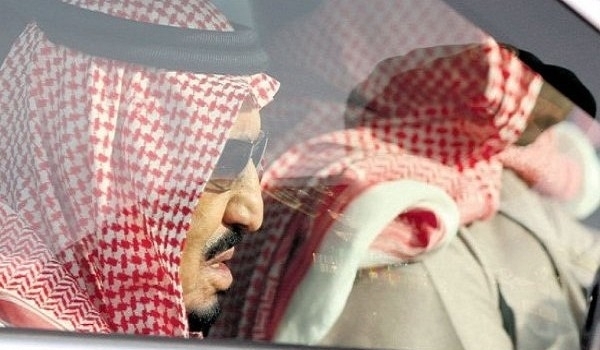
RNA - The request was reportedly faced with Kuwait's rejection that drew the Saudi leaders' fury and protest.
Challenged leadership
The Saudi leaders are angered by the Kuwait's refusal because Riyadh considers itself the big brother and representative of the (Persian) Gulf Cooperation Council (PGCC) and its moves have always aimed at concreting this leadership. The kingdom acts within the Arab bloc as it sees itself lacking the potentials to compete with Iran as its most significant regional rival. Saudi Arabia reacts furiously anytime it sees its so-called superiority is questioned by the other Persian Gulf Arab nations.
In past few weeks, Kuwait moved just contrary to Riyadh’s opposition to any Arab states' dialogue with Iran. It sent its foreign minister to Iran and hosted the Iranian president Hassan Rouhani, showing an interest in taking an independent approach in dealing with the regional cases. Also in August 2015 an arms cargo was discovered in the Kuwaiti territorial waters. The Arab media linked the weapons shipment to Iran. As a result, Saudi Arabia called on Kuwait to sever diplomatic ties with Iran, something Kuwait rejected to do.
Yemen war costs and “mercenary” allies
23 months after aggression against Yemen, Saudi-led Arab military coalition has gained no major achievements but Riyadh still insists on fulfilling its pre-set goals. The analysts argue that this long time means that the war option has gone nowhere in Yemen. On the other side, any termination of the anti-Yemeni campaign without any gains will deal a big blow to the Saudi Arabian and the Arab council's military credibility. It also will discredit the media propaganda that exaggerates the capability of the ruling Saudi family in solving the domestic problems and protecting the Saudi people’s interests.
Asked about the huge costs of aggression against Yemen especially amid global oil prices drop, Ahmed al-Asiri, the Saudi military spokesman and advisor, asserted that the coalition’s airstrikes come to preserve the national security and regional stability, and no matter how much the costs are they will pay them.
According to a report by the Stockholm International Peace Research Institute, the 2016 Saudi military and defense spending have shrunk in comparison to that of regime in 2015. The Sweden-based institute attributed the decreased military spending to the sharp drop of oil and gas prices. Nevertheless, the kingdom keeps some increase in its military sector through cuts in budget of other sectors of the economy amid its suffering from a fairly $53 billion budget deficit in 2017. The kingdom had expected $87 billion and $98 billion budget deficits respectively in 2015 and 2016. However, the country has eyed a 6.7 percent growth for its military spending in 2017, allowing the military budget to hit $50.8 billion for the current year.
This big money is not restricted to spending on the anti-Yemeni campaign. Rather, part of the money goes to economic and military appeasement of other Arab and non-Arab countries like Egypt, Sudan, and Pakistan to persuade them to join the Riyadh-led Yemen war as part of the coalition. The Saudi leaders, however, argue that the Yemen war is an outcome of joint Arab states' decision to confront the Iranian influence in the region but the kingdom itself is paying for a large share of the costs, equipment provision, and manpower.
Political ambitions and economic frustration
The Saudis recently told of forming an “Arab NATO” that will send troops to Syria. Putting forward such a plan ostensibly shows that the economic troubles are far from influencing the Saudi Arabian resolution to pursue its ambitious policies. But this is not true in practice. Actually, the main drive behind this proposal is a show of Saudi commitment to paying for the American military deployment to the Persian Gulf region to save the Arab security and the plan to establish safe zones in northern Syria.
According to Alwaght News & Analysis website, in March 2016, a Bloomberg news report quoted the Saudi crown prince Mohammad bin Salman as saying that the kingdom eyed listing the IPO of Aramco, the kingdom’s state-owned oil giant, on the New York Stock Exchange. The fresh reports speculate that the current Saudi king’s tour of East Asia comes to allure the Asian investors to buy 5 percent of Aramco stakes. The public offering of the oil company’s shares aims at easing the economic troubles.
According to the Bloomberg, Mohammad bin Salman said that he expected the value of the oil company to exceed $2 trillion. But the important point is that the global valuation agencies estimated the total value of Aramco to be less than the announced number. They argue that its value is variable between at least $400 billion and at most $1 trillion. The evaluations suggest that the Saudis will only get half of the expected $100 billion budget raising during their public offering of 5 percent of the company’s share.
847/940